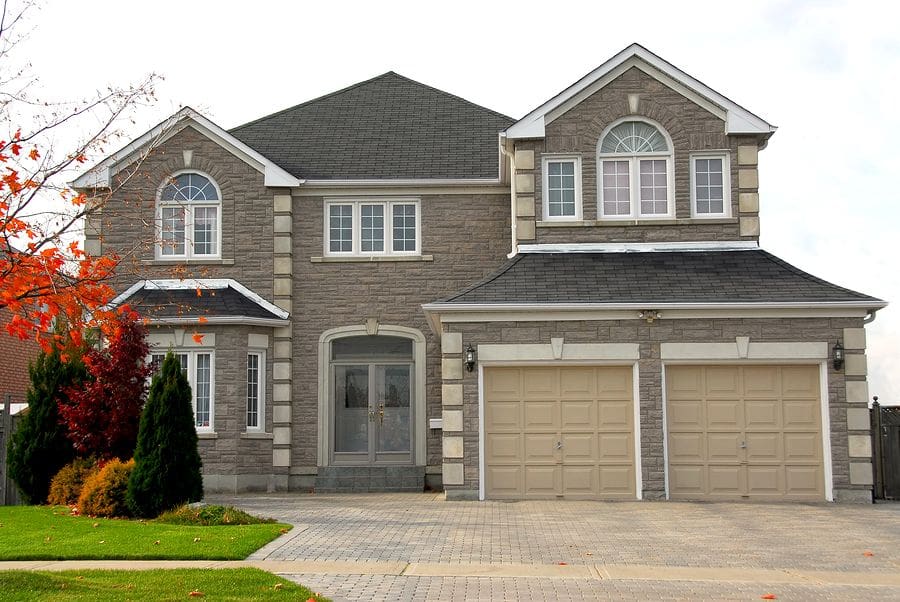
It's a problem we're all familiar with — should you pay off student loans or buy a house. On the one hand, there's the promise of the American dream; someplace you can truly call home and finally feel like all your hard work has paid off. On the other hand, there's the sweet, sweet promise of being debt-free and finally being able to call all of your hard-earned dollars your own.
Which should student loan borrowers choose once they've built up an emergency fund? Should they pay off student loans or buy a house? It depends on each person's financial situation and preferences.
Luckily some clues might help you hone in on one strategy or another. In this article, we'll help you decide between three options:
- Paying off student loans first.
- Saving to buy a house first.
- Doing both at the same time.
Strategy #1: Pay off student loans first
With this strategy, you opt to put all of your extra cash toward your student loans and nothing toward saving for a house. Then, if you want a place after you've paid off all of your student loans, you can focus on saving for that next.
Pros of paying off your student loans first

Are you a debt hater? Does the thought of carrying your debt around like a monkey on your back for the next ten to 20 years terrify you more than the thought of not being able to buy a house?
If so, then paying off your debt before you save for a house might be a more sensible strategy for you in the long run — you can worry about how to save for a house later.
1. You’ll lower your debt-to-income ratio
Did you know your student loan debt has real-world implications for whether you can get a mortgage and how much you could borrow? It all has to do with what the mortgage industry calls your “debt-to-income ratio” (also known as DTI).
It's a ratio based on your monthly debt payments (your mortgage plus your other debts, including student loans) to your monthly compensation.
For example, suppose you're trying to get a mortgage with a $1,500 monthly payment. You already pay $500 in monthly student loan payments, and you and your spouse bring home $6,000 per month. In that case, your DTI would be:
[($1,500 mortgage + $500 student loans) / $6,000 monthly household income]= 33% DTI
According to the Consumer Financial Protection Bureau, most conventional lenders generally won't approve you for a mortgage if your DTI is above 43%. If you have high student loan payments but don't earn a high income, your lender might not approve you for a mortgage that's large enough to purchase the home you want. Or you may be unable to get a mortgage at all.
In this case, your only option may be to pay down your student loans first and then worry about how to save for a house.
2. You’ll free up more cash to afford housing expenses
Ask anyone who's ever bought a house if their costs were limited to their down payment and monthly mortgage payments. Chances are they'll laugh you right out of their home.
There is a whole slew of other expenses you need to pay for beyond just the mortgage down payment that homeowners usually fret about:
- HOA fees
- Insurance premiums and deductibles
- Emergency repairs
- Normal maintenance expenses
- Upgrades and remodels
- And more…
One significant advantage of paying off your student loans first is that you'll have more cash flow each month to handle these expenses. That can alleviate many worries that could keep you up at night and help ensure that you don't become house-poor.
Cons of paying off your student debt first
I'll be honest. Unless an unknown rich relative dies and leaves you with his fortune, it's unlikely that you'll be buying a house anytime soon if you choose this strategy.
That's because you'll first go through a debt-payoff phase, which could last a long time. Then you'll need to start another house-saving phase to save the tens of thousands of dollars that you'll need to cover your down payment and closing costs.
In total, this means it could be a long time before you're able to sign your name on the dotted line. And that's a lot of time that you could have spent building up equity in your home.
How to pay off your student loans faster
Regardless of which strategy you opt for, there are things that anyone can do to pay off their student loans faster.
One of the biggest things you can do is refinance your student loans.
This is an excellent option for people who have private student loans since there are no federal student loan protections you'd give up by refinancing. If you do have federal student loans, think long and hard about whether it's worth giving up federal protections (like income-driven repayment plans and PSLF) in return for a lower interest rate.
Strategy #2: Buy a house first

Feeling antsy to buy a house? You’re not alone. Here are three major perks of opting for this strategy.
1. You can get into your dream home sooner
The most obvious benefit of saving for a house first is that you'll have the mortgage down payment saved up faster. It could mean you'll be able to buy a house sooner than if you'd chosen to prioritize student loan debt payoff first.
This factor might be vital for people who value homeownership and don't mind carrying that debt longer to pay for this privilege.
It also means that you might be able to lock in a lower interest rate now before mortgage rates rise. Or you can lock in a low price now before home values appreciate too much in your area. This can be a bit of a gamble, though.
No one knows where interest rates or home prices will be in the future, especially several years out when you might have enough money pulled together for a mortgage down payment.
2. Compound interest could help you save more
One of the benefits of saving early and often is that you'll have more time for interest to compound. Compounding interest over time helps you save even more money without having to work for it.
To see how compound interest can help you, try out this calculator and enter:
- Your initial savings balance
- How much you expect to save each month
- The number of years you'll save
- Your anticipated interest rate
It can show you how much interest could compound over time.
For example, if you start from scratch and save $500 per month for five years at an interest rate of 2.25% (the highest rate some banks are offering as of late October 2018), you could earn a total of $1,721.17 in interest by the end of those five years. That's an extra $1,721.17 that you didn't have to go out and earn yourself.
If you choose to pay off debt first, you might not have as long of a period to save, and you could miss out on all those sweet dividends.
3. A portion of your student loans may be forgivable
Unlike mortgage debt, there are a wide variety of programs that offer forgiveness for student debt. The Public Service Loan Forgiveness (PSLF) program is probably the best-known and offers full forgiveness for public sector workers in as little as ten years (120 qualifying payments).
However, there are many other student loan forgiveness and loan repayment programs. Most of these programs are profession-specific such as the Teacher Loan Forgiveness Program and the NHSC Loan Repayment program for healthcare workers. Even if you don't qualify for these programs, you might still receive some forgiveness if you end up with an outstanding balance after completing an income-driven repayment plan.
If you're expecting to have a portion of your student loans forgiven, you could be giving away thousands of dollars of free money by paying them off early. Instead, apply that money towards buying a house.
Cons of buying a house first
The first con of buying a house first is that it introduces more variable expenses to your life. If you rent, that’s the theoretical maximum you’ll pay each month for housing. But if you own a home, your monthly mortgage payment is the theoretical minimum you’ll pay. Your actual expenses could be way more than just your mortgage payment. For example, you may need to pay property taxes, home maintenance and repairs, or HOA fees.
If you're still paying your student loans when you become a homeowner, that means you're more vulnerable to becoming house poor. You might not have the cash flow available to float all those other expenses that come along with homeownership, whether they're planned or surprise costs.
Another con of trying to buy a house first is that you may not qualify for a mortgage if you have a low credit score. Conventional loans, for example, typically require a credit score of at least 620.
Other government-insured loans like Federal Housing Administration (FHA) mortgages are more flexible. But even if you can get a mortgage with a less-than-stellar credit score, it's unlikely that the lender will offer you its best rate.
If you decide to apply for a mortgage with a mediocre credit score, shop around with several mortgage lenders to make sure you're getting the best offer.
How to save for a home purchase faster
The median new home price in September 2018 was $372,400, according to the U.S. Census Bureau. If you aim to make a 20% mortgage down payment to avoid PMI, you’ll need to save at least $74,500. That's quite a feat for anyone to manage.
You can give yourself a leg up by packing your savings away into a high-yield savings account. Some people choose to invest their mortgage down payment savings in index funds and bonds. You can potentially earn more money over time with this strategy, but there's the risk that you could lose money as well.
Putting your savings in the stock market is generally not advised unless you’re saving for many, many years (that’s why most experts recommend keeping your retirement savings invested). Even then, you still have to be comfortable with the idea that you could lose a lot of money.
Get Started With Our New IDR Calculator

Strategy #3: Paying off student loans and saving for a house
Still feeling flummoxed about choosing one strategy over the other? There's good news. You don't necessarily have to decide whether to pay off student loans or buy a house. You can do both.
You hedge your bets a bit more by going along the middle road and paying off student loans while also saving for a home. You'll be able to buy a house sooner than if you'd focused 100% on debt payoff. You might also have your student loans paid off shortly after purchasing a home rather than carrying that debt for years more.
The only downside to wielding a dual-mode strategy is that it'll take you longer to progress in any one direction.
How to save for a house and pay off your student loan balance
The reality is that for many people, paying off debt and saving for a house are both worthy goals. Still, choosing to pursue them both at the same time isn’t exactly a cakewalk.
You'll need to knuckle down and become a money-management guru. You'll need to develop a budget to know exactly where each extra dollar you earn should be going — toward debt or your house savings fund.
Depending on where you live, you may also qualify for a state-sponsored SmartBuy program designed to help student loan borrowers purchase homes. The Illinois and Maryland SmartBuy programs, for example, will each provide up to 15% of a home's purchase price to pay off outstanding student debt for homebuyers.
Pay off student loans or buy a house? Only you can decide
We’ve given you a lot of things to think about. The reality is that there’s no right or wrong answer. And the “best” answer will vary by each person's situation.
For example, if your student loan interest rates are very low, buying a house might make more sense. But if you have private student loans with high interest rates, paying them off sooner may make a lot of sense.
Assuming you actually do want to own a home someday, all of these options will help get you there while paying off student loans. It’s merely a choice of what’s good, best or better for your financial situation and your goals.
Refinance student loans, get a bonus in 2024
| Lender Name | Lender | Offer | Learn more |
|---|---|---|---|

|
$500 Bonus
*Includes optional 0.25% Auto Pay discount. For 100k or more.
|
Fixed 5.24 - 9.99% APR*
Variable 6.24 - 9.99% APR*
|
|

|
$1,000 Bonus
For 100k or more. $300 for 50k to $99,999
|
Fixed 5.19 - 10.24% APPR
Variable 5.28 - 10.24% APR
|
|

|
$1,000 Bonus
For 100k or more. $200 for 50k to $99,999
|
Fixed 5.19 - 9.74% APR
Variable 5.99 - 9.74% APR
|
|

|
$1,050 Bonus
For 100k+, $300 for 50k to 99k.
|
Fixed 5.44 - 9.75% APR
Variable 5.49 - 9.95% APR
|
|

|
$1,275 Bonus
For 150k+, $300 to $575 for 50k to 149k.
|
Fixed 5.48 - 8.69% APR
Variable 5.28 - 8.99% APR
|
|

|
$1,250 Bonus
For 100k+, $350 for 50k to 100k. $100 for 5k to 50k
|
Fixed 5.48 - 10.98% APR
Variable 5.28 - 12.41% AR
|
Not sure what to do with your student loans?
Take our 11 question quiz to get a personalized recommendation for 2024 on whether you should pursue PSLF, Biden’s New IDR plan, or refinancing (including the one lender we think could give you the best rate).
